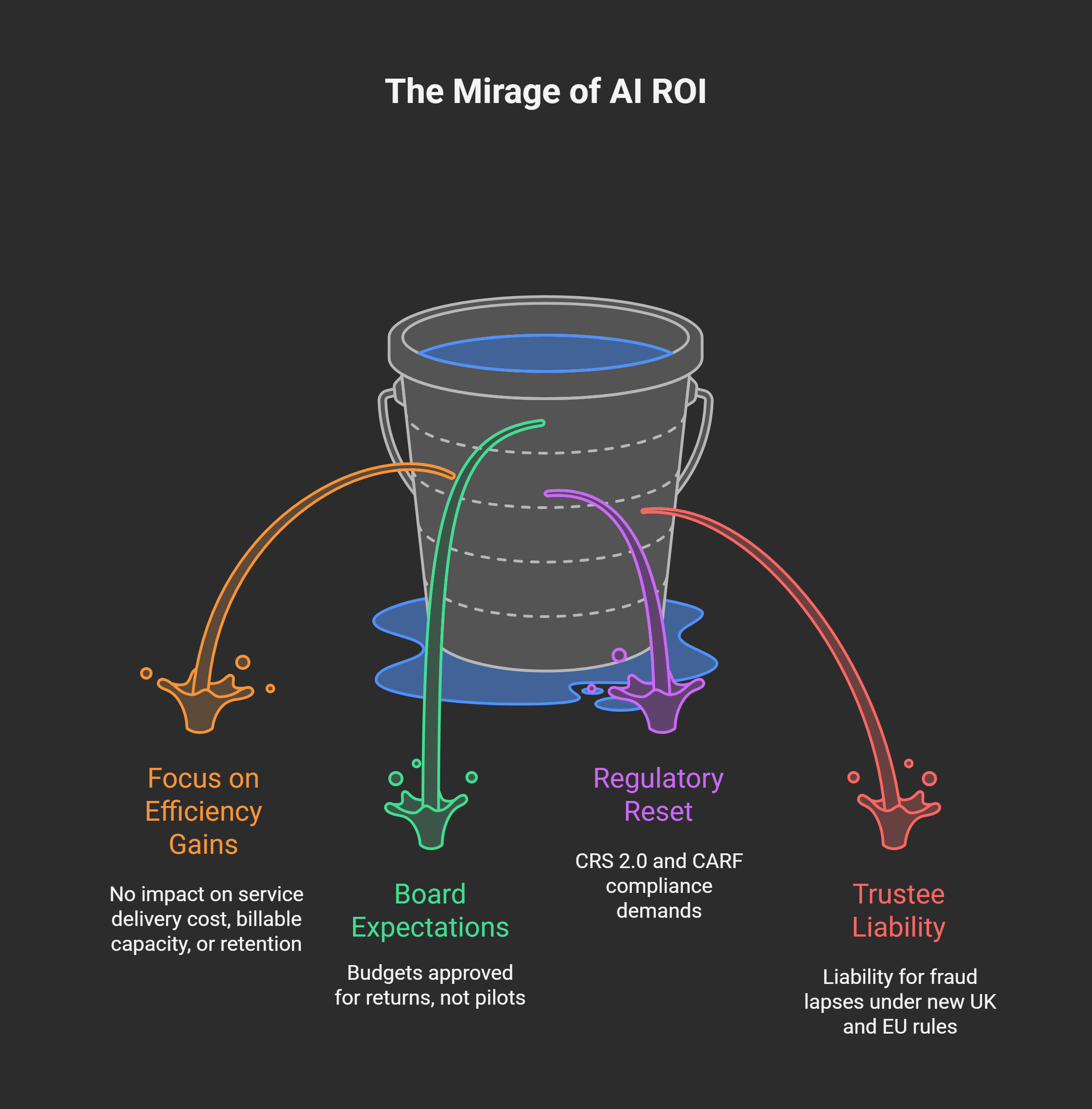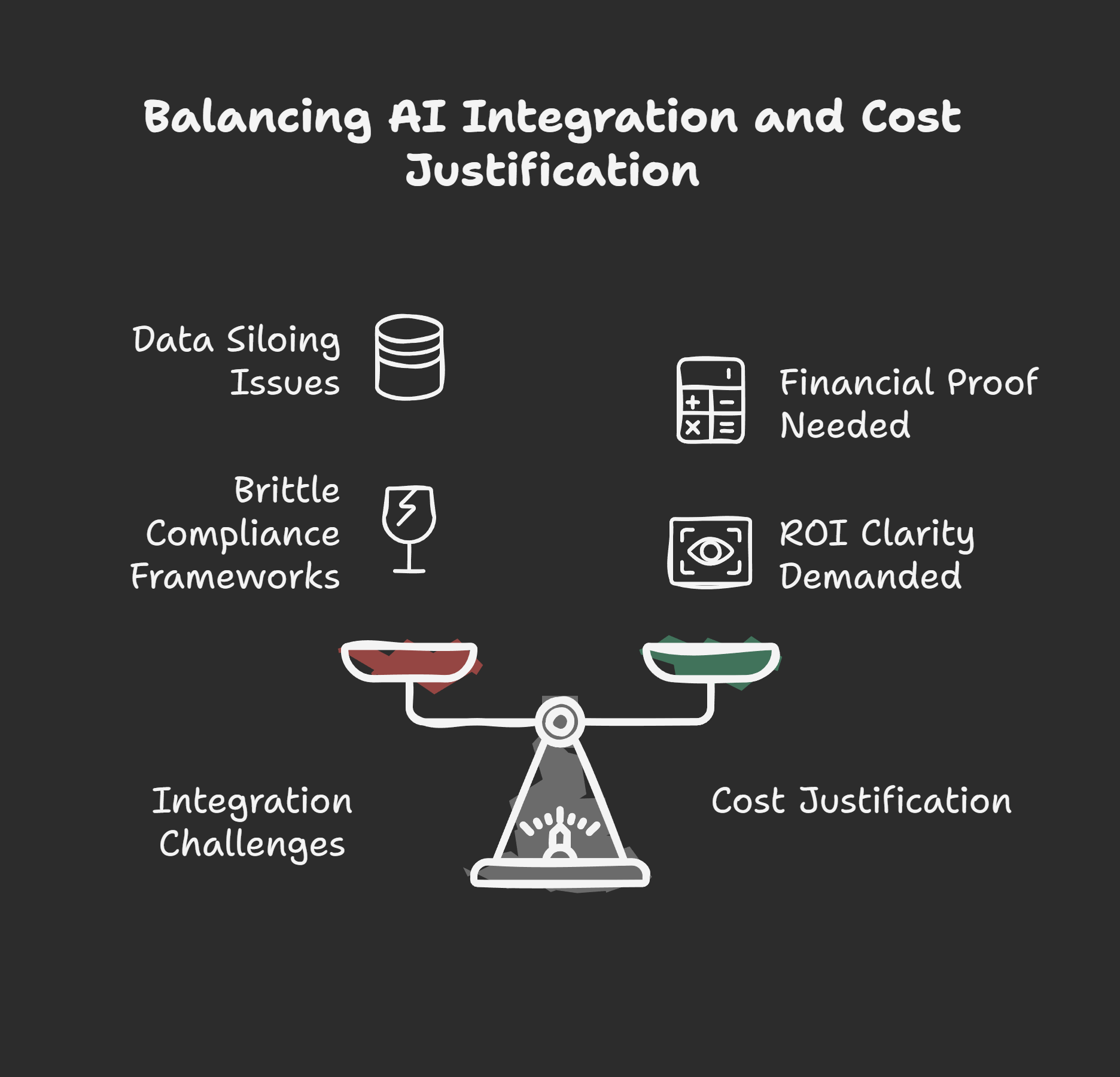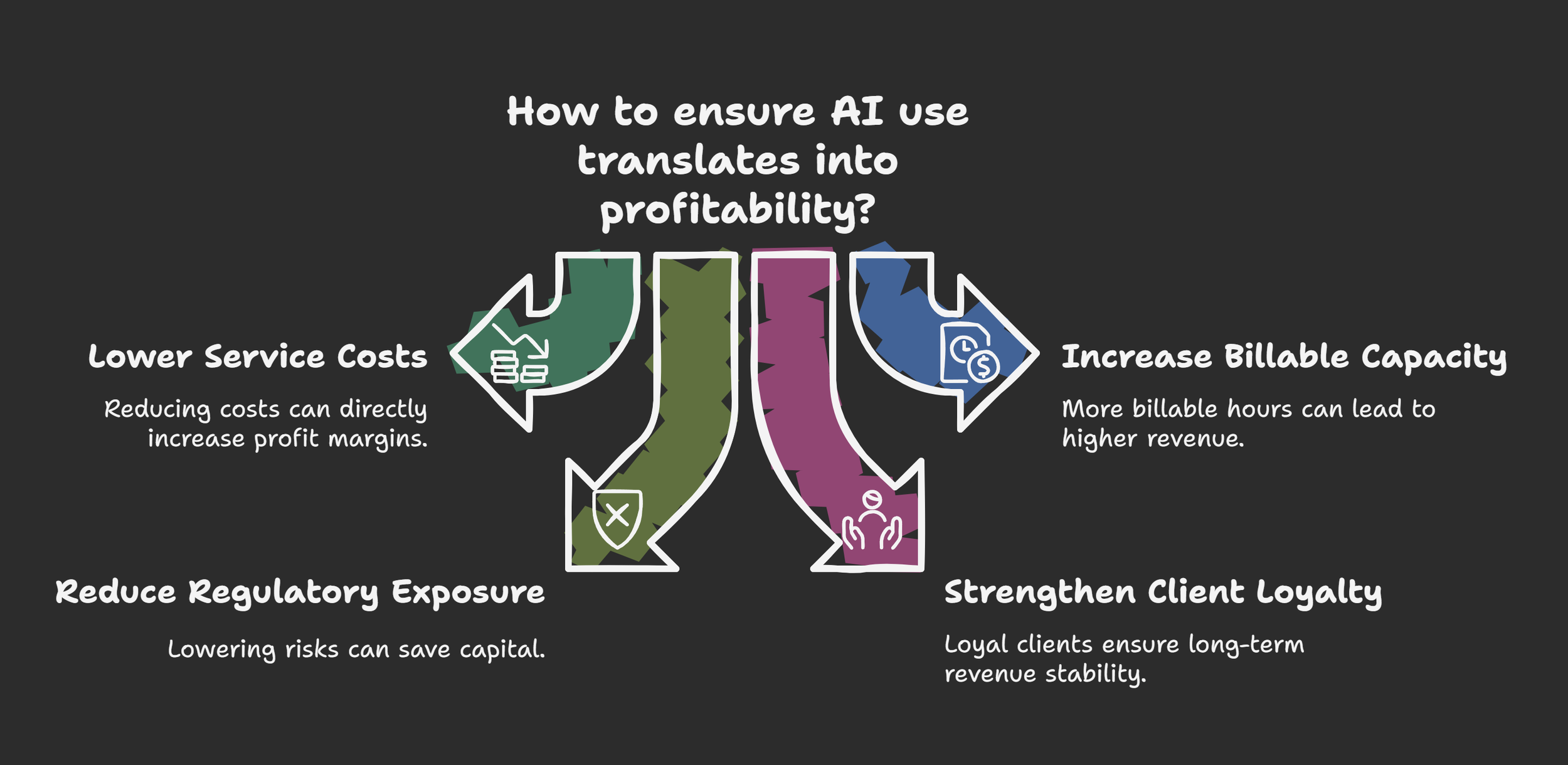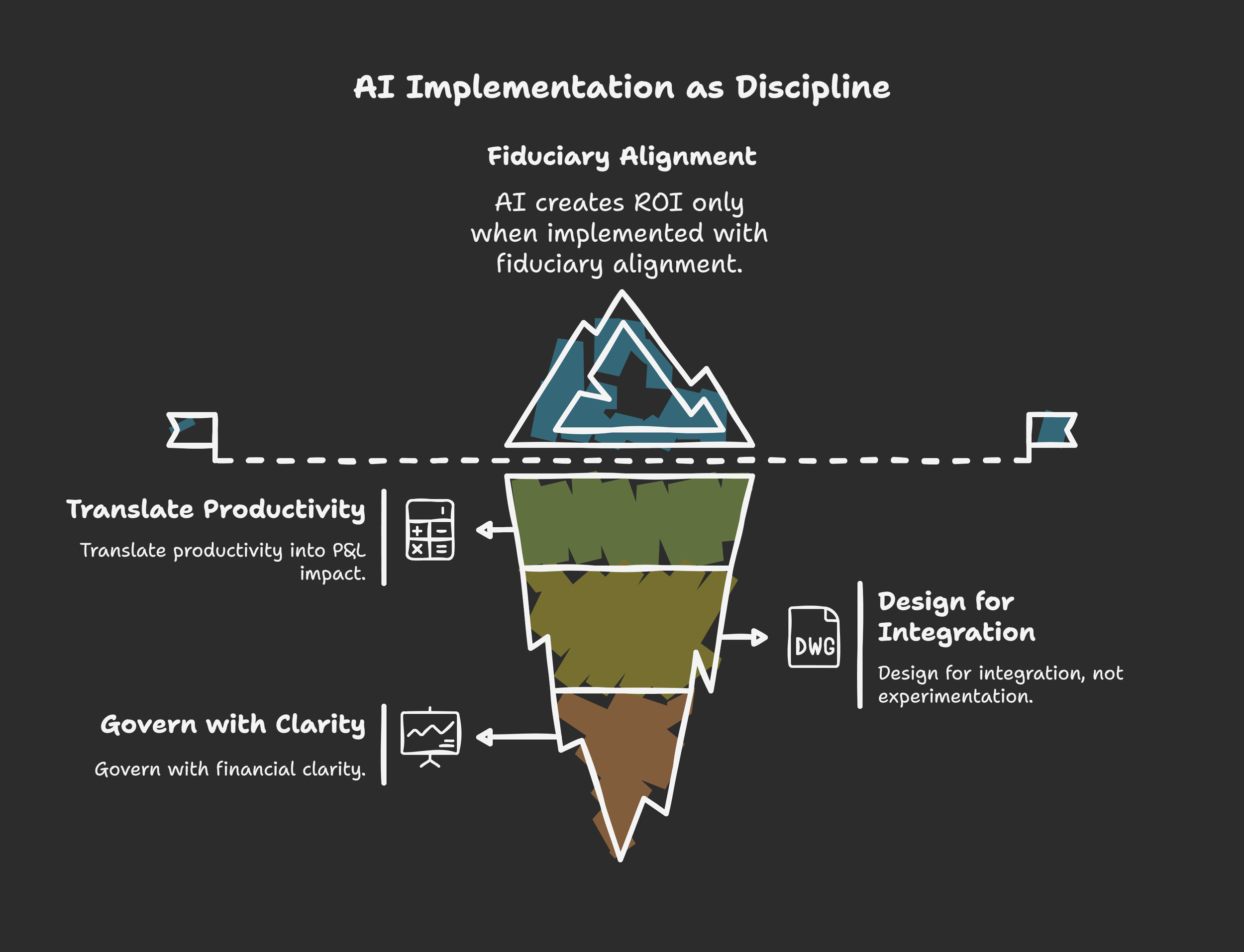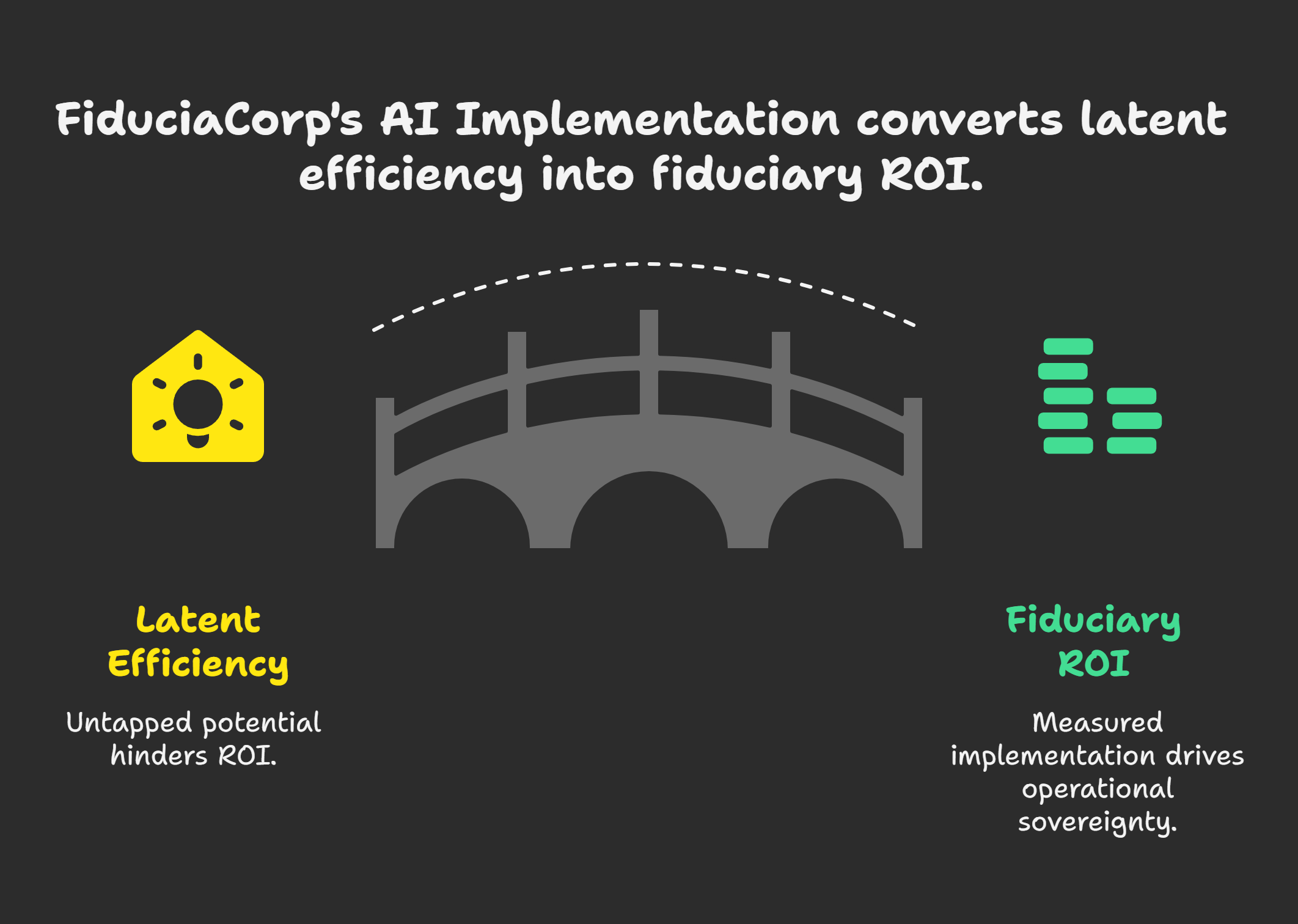AI, ROI, and the Discipline of Fiduciary Implementation
The headlines are deafening. “AI will transform everything.” Every week brings a new declaration of disruption, a new forecast of exponential returns.
But fiduciaries cannot operate on declarations. They operate on balance sheets.
And the truth, inconvenient for headlines but essential for trustees, is simple: AI is not ROI until it reaches the P&L.
Time saved is not money made. Productivity is not profitability. Automation is not growth—unless it can be traced directly to margin improvement, reduced liability, or expanded client value.
For trustees, family offices, and fiduciary boards, this distinction is not academic. It is existential. The fiduciary mandate is not to experiment with technology. It is to preserve and grow value in ways that are measurable, compliant, and accountable.
The Mirage of AI ROI
Across industries, billions have already been spent on generative AI pilots. Most firms now advertise “efficiency gains,” often framed as hours of manual work eliminated. But when pressed to show these gains in financial statements, few can draw a line beyond productivity anecdotes.
Operational efficiency is useful—but unless it reduces service delivery cost, expands billable capacity, or enhances retention, it remains a footnote, not a business outcome.
Boards understand this. They do not approve budgets for pilots. They approve budgets for returns.
And fiduciary entities face an added pressure: By 2027, CRS 2.0 and CARF will demand upgraded compliance across 51 jurisdictions. Under new UK and EU rules, liability for fraud lapses will sit squarely with trustees.
The combination is unforgiving: a regulatory reset colliding with AI hype. Trustees cannot afford to waste capital on tools that do not resolve compliance or revenue outcomes.
The Two Frictions
Why is the AI ROI curve so slow? Two structural frictions dominate:
1. Integration with existing systems
Trust companies were not designed for elegant adoption. Data is siloed. Compliance frameworks are brittle. Workflows reflect decades of legal precedent, not digital design. “Dropping AI on top” rarely works. The cost of harmonization is higher than anticipated.
2. Cost justification and ROI clarity
Boards demand financial proof. An AI project that cannot translate into reduced audit cost, measurable risk mitigation, or incremental billable hours will not pass. Fiduciary oversight does not fund experiments. It funds outcomes.
These frictions are not obstacles. They are simply the terrain. And firms that accept them gain a strategic advantage.
Why Productivity ≠ Profitability
Consider the common claim: “AI saves hours of manual work.” True. But who performed that work? Was it billable? Did it generate client value? Did removing it expand capacity or strengthen retention?
If not, those hours are latent efficiency—trapped, unable to surface as profit.
For fiduciaries, this is the very definition of accountability. Every AI use case must pass the profitability test. Time saved must be translated into:
Lower cost of service delivery
Higher billable capacity
Reduced regulatory exposure (measurable in capital terms)
Stronger client loyalty and continuity
Without conversion, AI is just another line item.
The Adoption Curve: Slowness as Strength
Every technology wave begins with exuberance, then slows into consolidation. Internet, blockchain, cloud—all promised faster returns than reality delivered. AI is no different.
But slowness is not weakness. For trustees and family offices, the measured curve is an advantage. It forces discipline. It demands governance. It ensures adoption is not for spectacle, but for stewardship.
Those who align AI with fiduciary outcomes—not media narratives—will not only capture early wins, but compound long-term trust.
The Fiduciary Path: Implementation as Discipline
FiduciaCorp’s work across trustees and family offices confirms one truth: AI creates ROI only when implemented with fiduciary alignment.
That requires three disciplines:
1. Translate productivity into P&L impact
Define before launch: Will compliance cost fall? Will billable hours increase? Will penalties be avoided? If no direct P&L link exists, the initiative is not worth pursuing.
2. Design for integration, not experimentation
Choose entry points where automation directly reduces service cost or liability: compliance reporting, onboarding, document review. Not novelty, but adjacency.
3. Govern with financial clarity
Judge every AI initiative like any other investment—return on capital deployed. Not “time saved.” Not “innovation achieved.” But financial outcomes realized.
👉 This is where FiduciaCorp sits — as the implementation partner that translates AI hype into fiduciary ROI, with sovereign, client-owned structures designed to withstand the regulatory reset of 2027.
From Latent Efficiency to ROI
At FiduciaCorp, we do not sell tools. We design sovereign AI implementations. One such structure is the AI Trust Officer™—a modular framework deployed in hours.
It is not software. It is implementation discipline. A way to turn latent efficiency into ROI.
Beyond these modules, FiduciaCorp supports trustees in broader AI implementation — from onboarding to reporting — wherever efficiency can be converted into measurable fiduciary ROI.
The media thrives on revolution. Trustees thrive on results.
Between noise and balance sheets lies the rare discipline of converting AI into fiduciary ROI. Those who master it will not only outperform peers, but redefine trust in the AI era.
Not through louder claims. But through quieter profits.
👉 Measured implementation is not just risk management — it is the foundation of operational sovereignty.
AI is not optional. It is inevitable.
The question is whether AI arrives as noise—or as fiduciary clarity.
FiduciaCorp exists to support trustees and family offices in sovereign execution. Not with hype. Not with tools for their own sake. But with measured, disciplined implementation that shows up where it matters—on the P&L.
Because in this new fiduciary era, leadership will not belong to the fastest. It will belong to those who implement with clarity, calm power, and financial proof.
FiduciaCorp: “Mastering AI, Empowering Wealth.”
